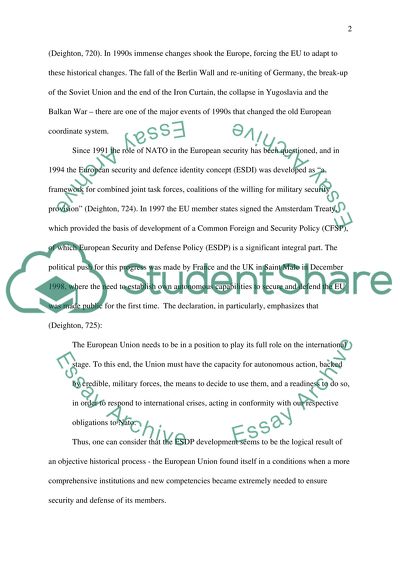Cite this document
(“To what extent has the development of the European Security and Essay”, n.d.)
Retrieved from https://studentshare.org/miscellaneous/1570929-to-what-extent-has-the-development-of-the-european-security-and-defence-policy-esdp-made-the-european-union-eu-a-strategic-actor
Retrieved from https://studentshare.org/miscellaneous/1570929-to-what-extent-has-the-development-of-the-european-security-and-defence-policy-esdp-made-the-european-union-eu-a-strategic-actor
(To What Extent Has the Development of the European Security and Essay)
https://studentshare.org/miscellaneous/1570929-to-what-extent-has-the-development-of-the-european-security-and-defence-policy-esdp-made-the-european-union-eu-a-strategic-actor.
https://studentshare.org/miscellaneous/1570929-to-what-extent-has-the-development-of-the-european-security-and-defence-policy-esdp-made-the-european-union-eu-a-strategic-actor.
“To What Extent Has the Development of the European Security and Essay”, n.d. https://studentshare.org/miscellaneous/1570929-to-what-extent-has-the-development-of-the-european-security-and-defence-policy-esdp-made-the-european-union-eu-a-strategic-actor.


